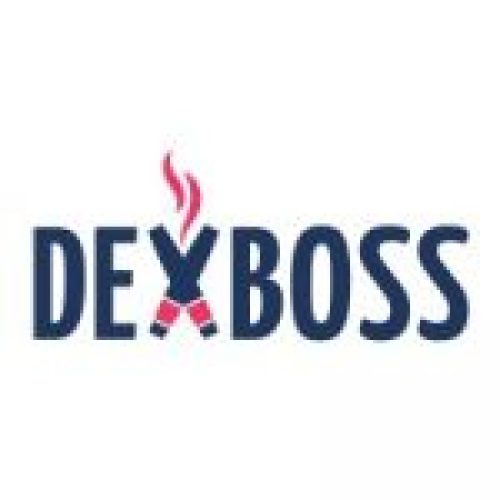Blockchain technology has revolutionized various industries with its inherent security features and decentralized architecture. However, like any other system, blockchains also have vulnerabilities that can be exploited by hackers to steal funds or data.
This is why a robust set of blockchain security tools and auditing protocols are critical to protect blockchain-based systems. In this comprehensive guide, we will explore some of the most widely used blockchain security tools across categories like network monitoring, bug detection, smart contract auditing, and more.
Network Monitoring Tools

Monitoring the overall health and performance of a blockchain network is crucial to identify issues or attacks in real-time. Here are some key tools used for blockchain network monitoring:
1. Alethio
Alethio provides in-depth analytics into Ethereum and other EVM-based networks. It enables easy monitoring of transactions, smart contracts, tokens, accounts, and other on-chain activity through interactive dashboards. Users can also set custom alerts for critical events.
2. Bloxy
Bloxy offers a suite of blockchain explorers and analytics tools for networks like Ethereum, BSC, Polygon, Avalanche, and Arbitrum. It tracks basic network stats, gas fees, whale activity, NFT trades, token transfers, and more to uncover market trends.
3. Nansen
Nansen leverages machine learning and proprietary clustering algorithms to provide meaningful insights from blockchain data. It summarizes on-chain metrics for assets and protocols to analyze adoption, track developer activity, spot fraudulent tokens, and more.
4. Dune Analytics
Dune is an open analytics platform that transforms Ethereum blockchain data into an easy-to-use SQL database. Users can write custom queries or interact with pre-built dashboards to analyze transactions, balances, contracts, and other metadata.
Bug Bounty and Vulnerability Detection
Bug bounty programs incentivize ethical hackers to find vulnerabilities in blockchain systems and responsibly disclose them before bad actors can exploit them. Here are some popular blockchain bug bounty platforms:
1. Immunefi
Immunefi operates dedicated bug bounty programs for popular DeFi protocols and blockchain platforms. Whitehat hackers can earn rewards up to $2 million for critical protocol vulnerabilities. Over $40 million in bounties have been paid out so far across projects.
2. Code4rena
Code Arena manages short bug bounty programs called Cyber Games for Ethereum, Polygon, and Gnosis chain projects. Each game has specific focus areas and offers rewards up to $30k to security researchers for uncovering issues.
3. Gitcoin
Alongside its crypto crowdfunding platform, Gitcoin also runs public bug bounty programs with tiered rewards proportional to vulnerability severity. Multiple blockchain networks and over 250 projects including Uniswap and Compound are currently supported.
4. HackerOne ClearForce
ClearForce by HackerOne manages private and invite-only bug bounty programs with NDAs that follow a coordinated disclosure process. It partners with several crypto businesses to get their applications and smart contracts audited discreetly by skilled hackers.
Smart Contract Security Tools

Smart contract exploits have consistently been the largest crypto threat vector with over $2 billion stolen in 2022 alone, as per Chainalysis. Here are some must-have tools for smart contract security audits and vulnerability assessments:
1. MythX
MythX offers smart contract audits, fuzzer testing, and pen-testing services to uncover dangerous coding errors in Ethereum and Polygon contracts. It uses symbolic execution, taint analysis, control flow checking and other advanced tools across audits.
2. Slither
Slither is an open-source static analysis framework written in Python for inspecting Solidity smart contracts. It uses taint analysis and data flow tracking to uncover common vulnerabilities with minimal false positives.
3. Oyente
Oyente analyzes Ethereum smart contract bytecode to detect potential security issues through symbolic execution and path exploration. It flags transactions that could trigger vulnerabilities by modeling various execution paths.
4. Securify
Securify scans smart contracts to generate security warnings grouped by risk level. It has custom compliance checks for issues like locked funds, leakage of secrets, manipulation of control flow, integer overflow, etc. that are missed by standard tools.
Blockchain Security Services and Protocols

Alongside tools, blockchain-native security services and protocols also play a key role in protecting users and instituting robust safeguards against risks like fraud and data leaks.
1. CertiK Chainproof
Chainproof by CertiK leverages decentralized validity proofs to enable L1 chains and L2s to exchange safety, security and correctness proofs in a trustless manner. This expands the protection guarantees for cross-chain applications.
2. AnChain.AI
AnChain.AI specializes in blockchain and Web3 security services powered by AI and big data analytics. It offers real-time Web3 threat intelligence, transaction monitoring, wallet forensics and risk management for crypto businesses.
3. Harbor Chain Analysis Tool
Harbor’s Chainanalysis tool traces on-chain data to generate risk scores for crypto users and transaction paths by evaluating historical behavior. It flags high-risk counterparties and activates warnings for anomalous activity to mitigate bad actors.
4. Esse.Network attestation protocol
The Esse.Network attestation protocol enables users to request trusted attestations to validate claims about identity, credentials, and online activity using a decentralized network of validators. Dapps can use attested data to evaluate risks.
Wallet Security Tools

Crypto wallet hacks were the leading Web3 threat in 2022, with $3 billion stolen from DeFi protocols and CeFi platforms, according to Chainalysis. Here are essential tools to secure crypto wallets:
1. MetaMask Security Guidelines
Metamask itself has comprehensive internal security processes. Beyond strong passwords, users should enable account encryption, customize privacy settings and always verify sites and transactions to stay protected against phishing.
2. Gnosis Safe Multisig
Gnosis Safe enables users to store crypto funds in high-security multi-signature wallets instead of trusting one private key. Transactions require approval from a predefined number of wallet owners to get executed making user funds more resilient to theft.
3. Arkane 2FA/FIDO
The Arkane web3 wallet provides institutional-grade security protections including support for hardware keys, 2FA/MFA authentication and FIDO/WebAuthn compliance for passwordless logins to guard user funds against unauthorized access.
4. Token Approval Checker
Token Approval Checker is a handy tool that scans tokens in a user’s wallet to identify and revoke unnecessary unlimited token approvals that could put their funds at risk if the smart contract gets compromised.
Blockchain Forensics Tools

Blockchain forensics tools piece together on-chain transaction histories from scrambled pseudonymous data to support criminal investigations and track stolen funds. Here are widely used blockchain analysis tools:
1. Chainalysis Investigations
Chainalysis Investigations leverages pattern recognition, proprietary algorithms and attribution models to connect the dots in blockchain transaction histories. It generates actionable intel to track suspicious flows and support remediation.
2. Elliptic Forensics
Elliptic’s forensics tools combine on-chain data with real-world crypto compliance data to identify suspect entities behind crimes. Users can visualize complex transaction flows through intuitive graphs to enhance and accelerate investigations.
3. TRM Labs Forensic Investigations
TRM Labs analyzes blockchain data to detect fraud and financial crimes. It connects activities across different chains and protocols into an immutable transaction graph that maps all associated entities and wallets.
4. Scorechain X-Ray and AML Check
Scorechain uses advanced analytics on historical records and dark web sources to perform background checks on crypto users and assign aggregated risk scores at wallet resolution to enhance KYC and transaction monitoring.
Conclusion
As cryptocurrency markets continue maturing, improving risk management through advanced blockchain analytics and robust cybersecurity standards will be vital. This guide discusses some of the most prominent blockchain security tools and platforms that are playing an important role by identifying threats, preventing attacks, supporting incident response and instituting greater accountability.
Going forward, easier access to security services, greater collaboration within developer communities on vulnerability disclosure practices, and continued evolution of auditing and forensics standards will be key drivers to minimize both unintended coding risks as well as premeditated theft and fraud across the growing blockchain sector.



